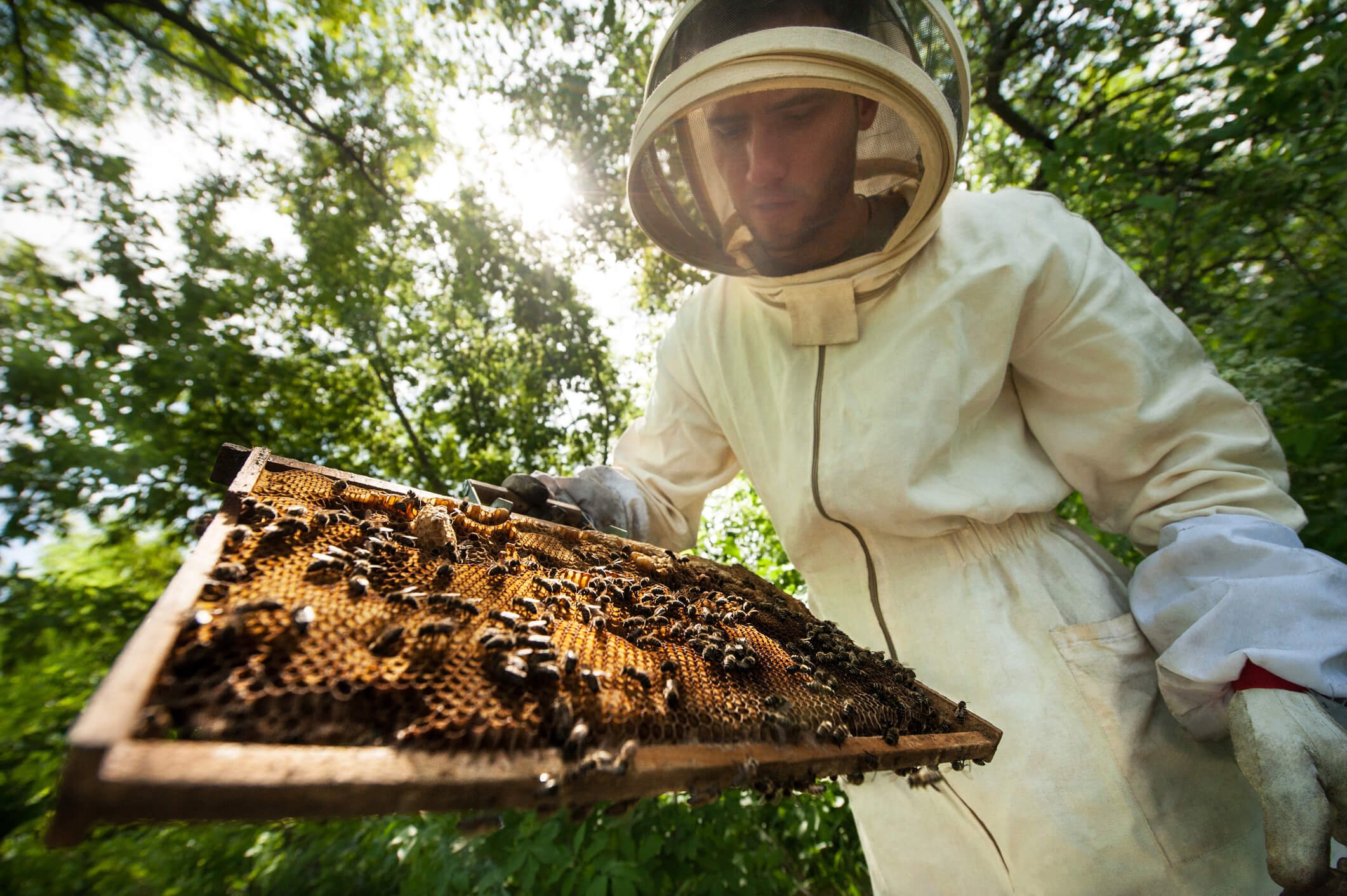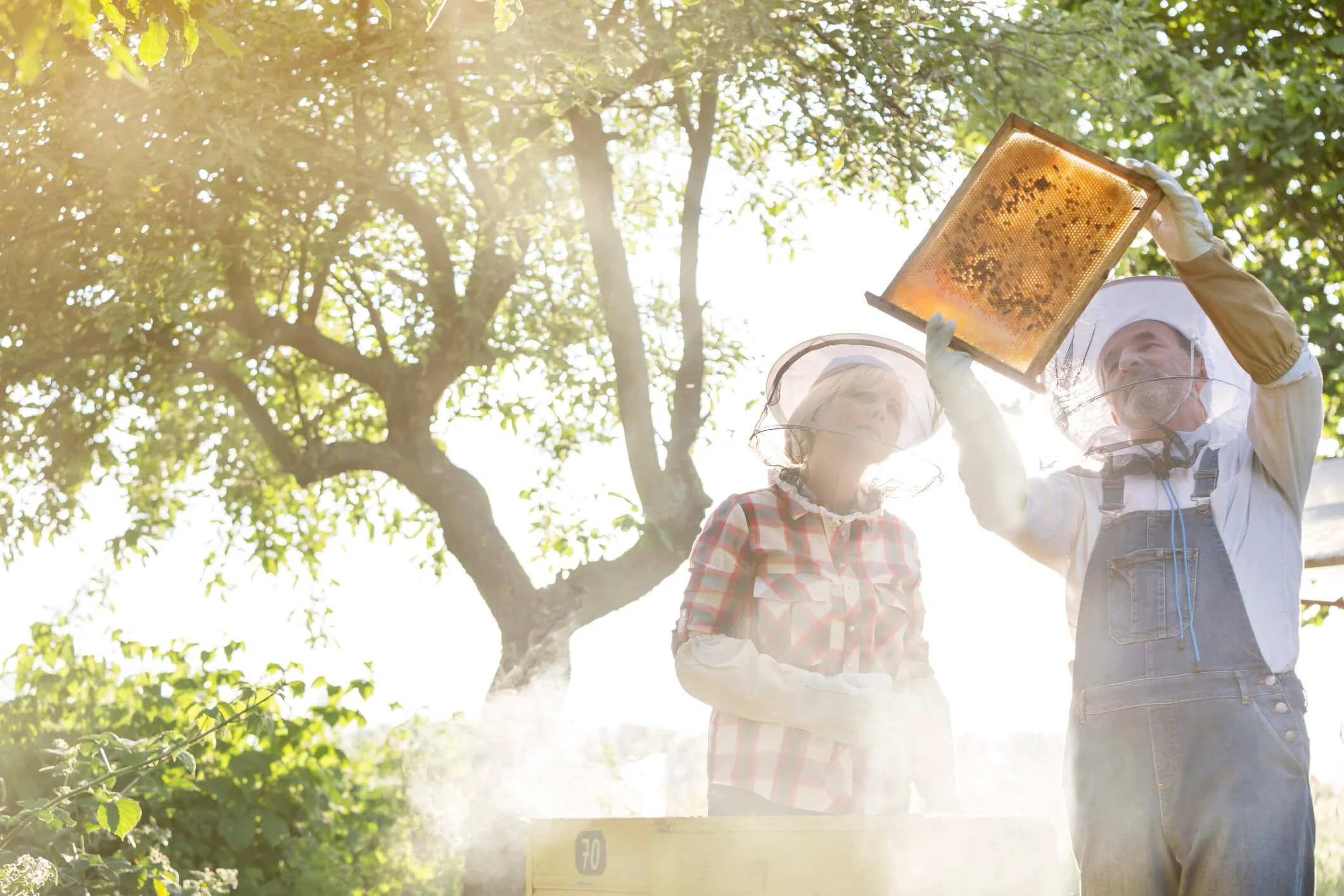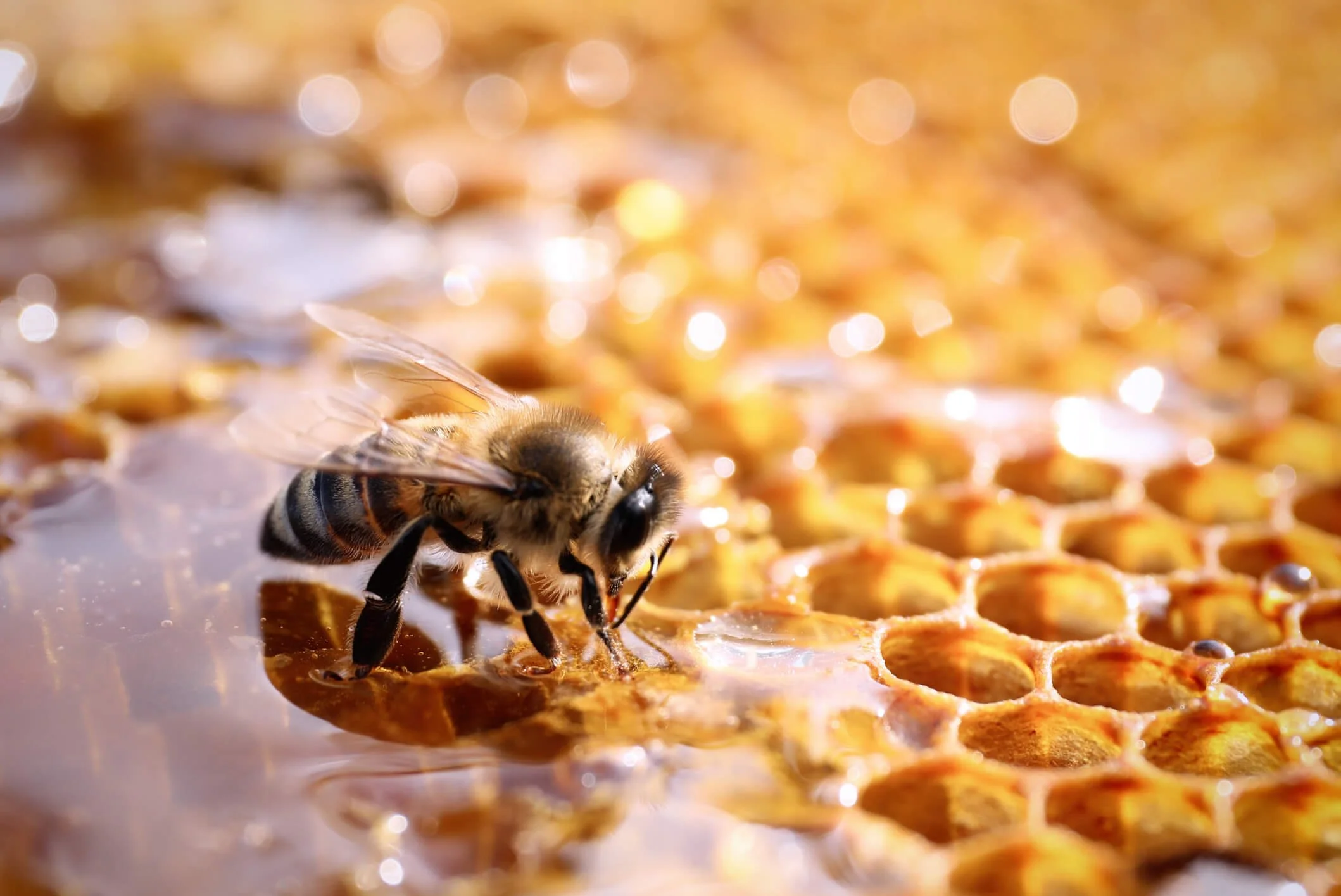Why Start an Apiary?
Discover > Beekeeping > Why Start an Apiary?
For most, the word apiary or bee backyard would bring to mind yellow and black stripes of hairy insects that might bring a painful sting when you cross paths with them. Bees, like other insect pollinators, such as butterflies, beetles, and moths are often taken for granted but little did we know that we need them. These fascinating little insects are essential for our food supply stability, healthy environment, and thriving economy. Bees are among the world’s top pollinators, helping plants grow, breed and produce food. Pollination is a vital part of plant reproduction. The vast majority of plants we need for food depend on pollination. This includes apples, almonds (how long do almonds last?), oranges, coffee, vanilla, tomatoes, eggplants (What wine goes well with eggplant?), squash, cucumbers, and more. Bees also pollinate a large percentage of flowers. Therefore bees are important for a strong, healthy ecosystem and in keeping the cycle of life turning.
Apiary, which comes from the Latin word “api” meaning bee, is also known as a bee yard. A man-made place that houses beehives where bees can produce and store various resources such as honey (how long does honey last?), royal jelly, and beeswax. They are managed by a beekeeper and can be situated in a rural or urban area. They can also be built like a gazebo with a wall-less roofed building. They can range from 2 hives for a hobbyist beekeeper to hundreds of hives for commercial production. All throughout history and in various places around the globe, apiaries are built to collect honey, benefit and help farming, or both.
Apiculture: A Comprehensive Guide to Beekeeping
Embark on a journey into the world of apiculture with our comprehensive guide, exploring the art and science of beekeeping for both beginners and enthusiasts.
Managing these insects is no small feat, one must have the passion or profit in mind to take on this challenge. But aside from honey as one of the sweetest rewards and financial gain from this venture, starting an apiary also does have some other great benefits that impact the economy and environment. Stated below are some of them.
Benefits of an Apiary
Economic Benefit
Bee-pollinated plant life produces a large amount of human food consumed each day. Bees pollinate a vast majority of plants. These plants support our food security, add nutritional value to our diet, and have a significant economic impact. Bees pollinate a variety of essential crops, including cotton and flax, as well as those used to feed cattle, such as clover and alfalfa. This means that bees have an influence on the meat and dairy sectors as well.
Huge beekeepers in the United States frequently relocate beehives from one area to another. They put hives onto large trucks and transport them to the new field to offer pollination. An apiary is extremely helpful to the fields surrounding it. It increases the output of a variety of crops. Lower agricultural yields, as a result of fewer bees, would result in higher production costs as well as higher consumer prices.
Environmental Benefit
Though not all crops are directly pollinated by bees, they still benefit from it indirectly. Plants are stimulated due to the presence of working bees just by being in an environment with an increased biodiversity. Bees also pollinate flowers and wild plants. They promote floral growth and improve floral landscapes. At the same time, an appealing and healthy habitat for other insects, birds, and animals is being created. Bees aren't restricted to the immediate area where they're maintained. They can collect nectar and pollen from hundreds of miles away. A more diverse and sustainable ecology benefits from insect-driven pollination and nectar gathering.
Bee Products
Bees produce honey, which is the most well-known and profitable of their products. Honey is a nutrient-dense natural sweetener that can be used for a variety of health benefits, including cough relief, wound healing, memory enhancement, allergy relief, body energy, killing antibiotic-resistant bacteria, preventing chemotherapy-induced low white blood cell counts, and improving scalp health and dandruff problems among others. Pollen, queen substance, propolis, beeswax, bee venom, and royal jelly are among the apiary products utilized in the cleaning, cosmetic, and pharmaceutical sectors. There have also been investigations into whether bee venom can be utilized to kill the HIV virus.
Bee Population is Declining
The majority of today’s beekeepers are hobbyists who do these things out of passion. The decline in the percentage of beekeepers worldwide is a growing concern. Beehives face a lot of challenges from cold winters to diseases and infestations to environmental stresses. Not to mention insufficient resources, exposure to pesticides, loss of habitat, and human intervention.
The beekeeping community is continuously battling misconceptions about these little creatures. Sharing and educating the importance of beekeeping not just to an individual but to humanity in general, helps make bees appealing and encourages others to take on the hobby. Bees are one of the many insects that give out something beneficial to us humans. They are an integral part of nature that is something that the world cannot afford to live without. The loss of pollinators in our world would leave an ecological hole that will change the way common crops grow. It could drastically decrease availability of crops and plants that provide vital micronutrients for human nourishment. This would greatly impact our food supply, diets, health and nutritional security.
Beekeeping is More Than Just Sustaining the Bee Population
Bees are not and cannot be domesticated. If you want to be a successful beekeeper, it is critical to learn about bees, their life cycle, ecosystem, and their natural behavior, how to start an apiary, and how to manage it properly. Beekeeping is more than just about sustaining the health and safety of bee populations. It is also about having a greater appreciation and awareness for nature. A better understanding of how we can help to conserve and preserve it.
To be able to achieve successful beekeeping, the learning process never stops. A deeper understanding and continuous learning about these little insects will help you be able to control them. Make them as productive as they can. Recognizing the importance of bees to nature and to our lives will enable us to take measures to protect them. Act and give full support knowing that we have a responsibility to ensure that these valuable insects don’t just survive but thrive all over the world.
Don’t forget to check out our all in one guide for homesteading, farming and ranching in Texas.





